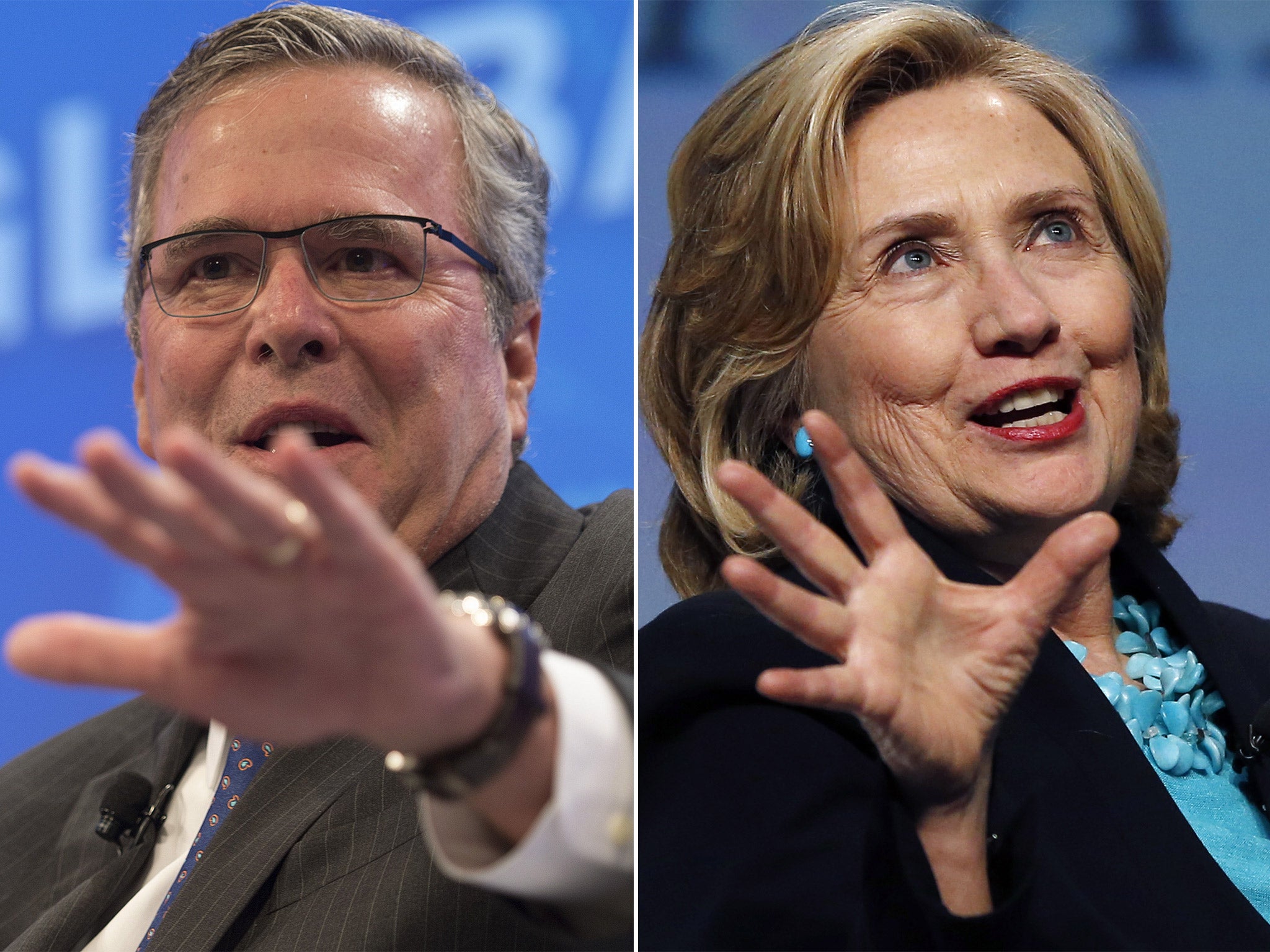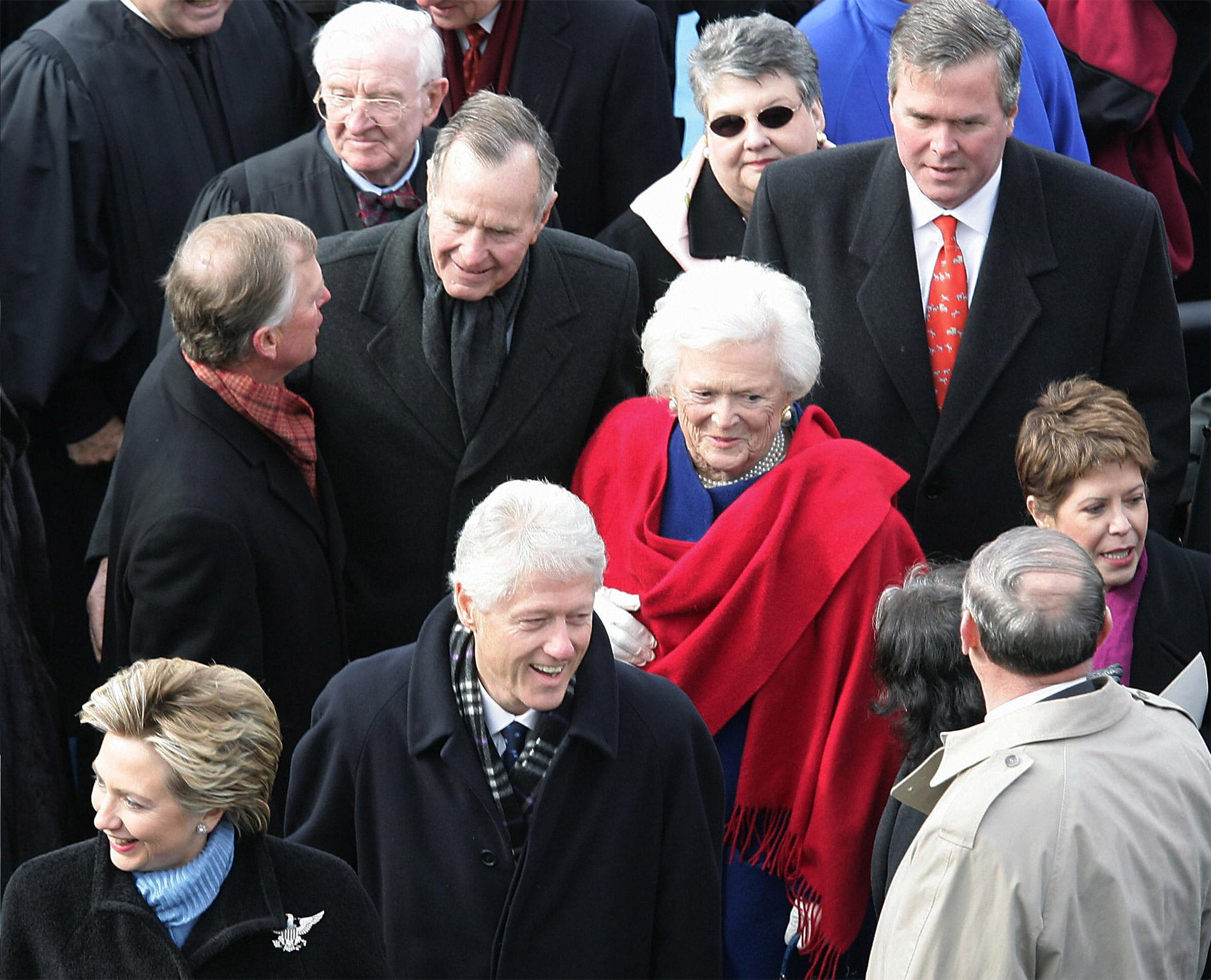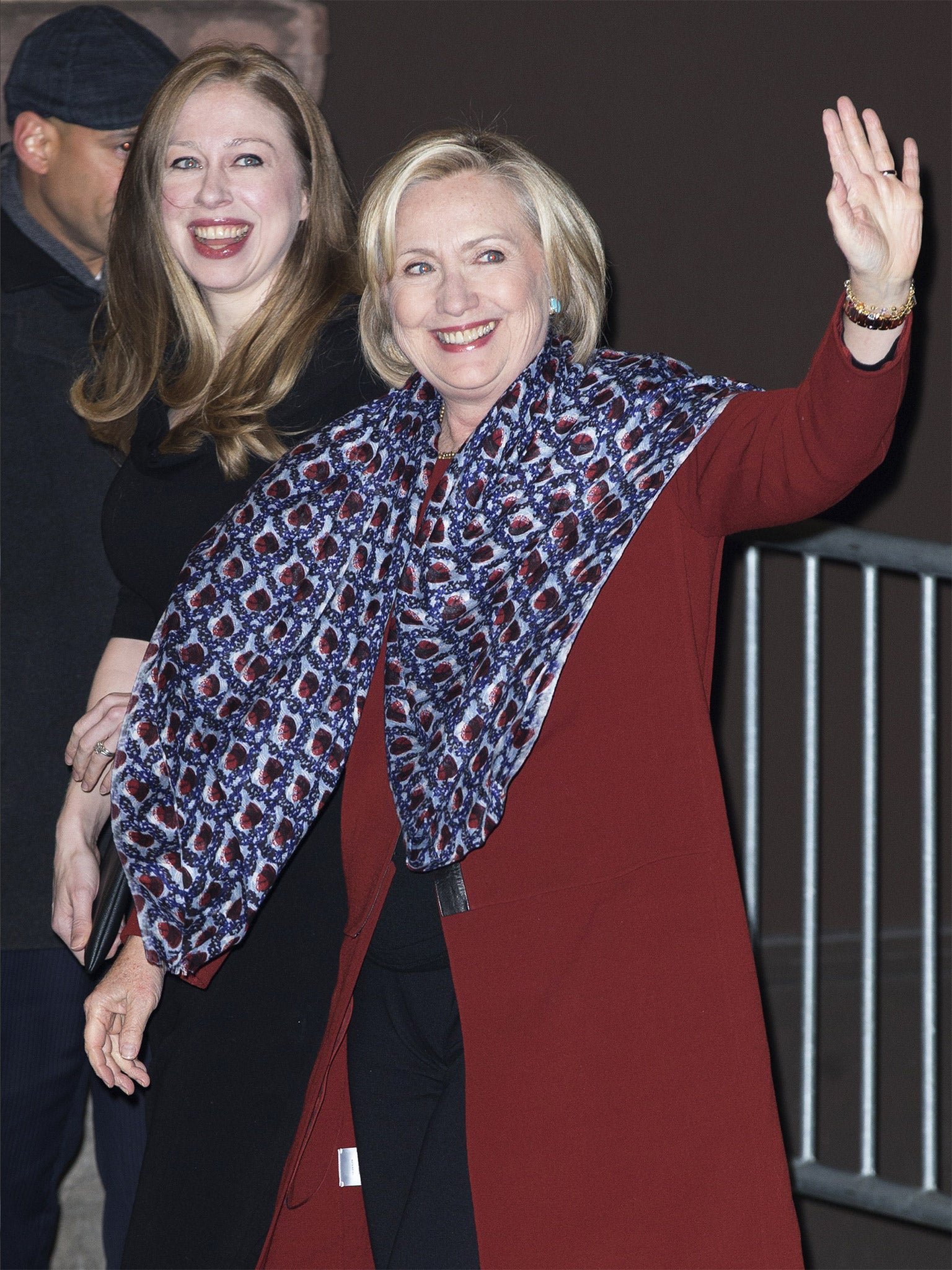Jeb Bush vs Hillary Clinton: The power dynamics of the two first families
With Jeb Bush announcing that he is to 'actively explore the possibility of running for President' and Hillary Clinton considered the odds-on favourite to get the Democratic nomination should she decide to run, there is a prospect that, for the second time in 24 years, a Bush may be battling a Clinton for the White House

Considering that the country got its start by shaking off a monarch, America has had a peculiarly strong attraction to political dynasties.
But it has never seen anything like the possibility that came into sharp focus on Tuesday when Jeb Bush announced on Twitter that he is about to "actively explore the possibility of running for President of the United States".
That instantly put the former Florida governor at the head of the pack chasing the 2016 Republican nomination.
It also raised the prospect that, for the second time in 24 years, a Bush may be battling a Clinton for the White House. Hillary Rodham Clinton, the former secretary of state and first lady, is considered the odds-on favourite to get the Democratic nomination should she decide to run, as most expect she will.
A spokesman for Clinton declined to comment on Bush's move with a pointed "No, thank you."
So entrenched are these two families in presidential politics that Americans under the age of 38 have experienced only one national election – 2012 – in which there has been no Bush or Clinton running for president or vice-president.
The relationship between the two clans has also been a complicated one – resentful and rivalrous at some points, warm and mutually beneficial at others.
While their famous last names are no doubt an enormous advantage, they carry some downsides, particularly at a time when both the Republicans and the Democrats are engaged in a struggle that pits their ideological bases against their more centrist establishment wings.
The Bushes and Clintons "are like enduring franchises in American politics", said David Axelrod, President Obama's former chief strategist. "There are also burdens that come from these franchises. You're not a brand-new car. Even if someone else put the [dents] in it, you're still driving it."
Or, as then Texas Governor George W Bush used to joke when he was running for president in 2000: "I inherited half my father's friends and all his enemies."
But being a Bush or a Clinton also brings with it instant name recognition, a national network of supporters and access to big money – all of which are more important in politics than ever, at least when it comes to getting a head start.
"I think we tend to become comfortable with what is familiar to us," said former Ohio congressman and governor Ted Strickland, a Clinton supporter.
He keeps a picture in his office of her taken in 1992, when she came to his congressional district to stump for her husband, then Arkansas governor Bill Clinton, in his first campaign for the White House.
But as Hillary Clinton learnt when she made her own bid in 2008, a seemingly invincible front-runner can crumple quickly. Her campaign was poorly managed. She often came off as wooden. And she found herself at odds with the Democratic base on the prevailing question of the day, having voted in favour of the war in Iraq.
For all of her early advantages, Clinton proved no match for an Illinois senator with a fresh face and an odd, foreign-sounding name who had spoken out early against the invasion of Iraq.

Ahead of 2016, Jeb Bush is likewise at odds with his party's grass roots on two emotional issues: comprehensive immigration reform and the Common Core academic standards (set requirements that students have to meet at the end of each year), both of which he favours.
His positions are expected to make it more difficult to win the GOP primary. "I'd be a lot more worried about him if I thought he could survive to April," said one Clinton friend, who requested anonymity because Clinton has not said that she will run.
But if he does get the nomination and "sticks to his guns... he'll be very formidable" in a November election, Axelrod said. "He's a pretty authentic guy, and authenticity is a big advantage."
Bush's Facebook statement (also announcing that he was edging toward candidacy) seemed like an attempt to simultaneously embrace his legacy and point to the future. He said he would be devoted to "restoring the promise of America", a phrase that sounded like a campaign slogan in the making.
Dynastic privilege – and the sense of entitlement that it evokes – has elicited mixed feelings among Americans all the way back to the founding of the republic. George Washington was so wary of seeming to be like a king that he wore a plain brown broadcloth suit to his first inauguration.
He also quashed an early proposal that his official title be "His Highness, the President of the United States of America and the Protector of Their Liberties".
Nonetheless, the country elected a father and son – John Adams and John Quincy Adams – as its second and sixth presidents. Since then, there have been periods where family names such as Roosevelt and Kennedy have carried a special weight in US politics.
The relationship between the Bush and Clinton families was a bitter one in the years after Bill Clinton denied George Bush Senior a second term in the White House in 1992.
Former aides to Clinton said he sometimes fumed privately that the blue-blooded Bushes looked down on him and his modest background. When George W Bush moved into the White House in 2001, his team accused Clinton's of vandalising the place, right down to removing the letter "W" from some computer keyboards.

But George Bush Senior and Bill Clinton developed a personal affection after George W Bush asked them to team up to raise relief money in the wake of the 2004 Indian Ocean tsunami that killed hundreds of thousands.
"The arrangement also had obvious advantages for both men – and their deeply political families," Time magazine journalists Nancy Gibbs and Michael Duffy wrote in The President's Club, a 2012 book about the bonds among former presidents.
"A friendship with the older, steadier Bush conferred a legitimacy on Clinton that he had partly squandered in his final years in office," Gibbs and Duffy wrote. "For Bush, the political maths was just as obvious – and even closer to home: his son, the president, was a divisive figure across the nation and having the spiritual leader of the Democratic Party as a partner made it more likely that the 42nd president would deliver his criticisms of the 43rd in a kinder, gentler fashion."
Now, once again, the families' interests have fallen out of sync, because only one of them – or perhaps neither – will be able to claim the title of 45th.
Anne Gearan contributed to this report. This article first appeared in 'The Washington Post'
The Bush-Clinton era: 35 years, two families
1979: Bill Clinton becomes governor of Arkansas
1980: George Bush Senior elected as vice-president, under Ronald Reagan
1988: George Bush Senior elected as president
1992: Bill Clinton defeats George Bush Senior to be elected president
1995: George W Bush becomes governor of Texas
1996: Bill Clinton becomes the second Democrat in history to win a second term, after Franklin D Roosevelt
1999: Jeb Bush becomes governor of Florida
2001: George W Bush succeeds Bill Clinton as president, becoming one of only two presidents who are the son of a former president (John Quincy Adams is the other)
2006: The families are jointly awarded the Philadelphia Liberty Medal for their work on the Bush-Clinton Katrina Fund and Bush-Clinton Tsunami Fund
2008: Hillary Rodham Clinton runs for the Democratic nomination for president, but loses to an unknown senator from Illinois – Barack Obama
2009: Hillary Clinton made secretary of state by Obama
2013: Hillary Clinton steps down as secretary of state, but is widely expected to be running for president in 2016. As she teases on the penultimate page of her biography Hard Choices: "The answer is, I haven't decided yet."
2014: Jeb Bush announces on Facebook and Twitter that he is "exploring the possibility of running for president" in 2016
Join our commenting forum
Join thought-provoking conversations, follow other Independent readers and see their replies
Comments